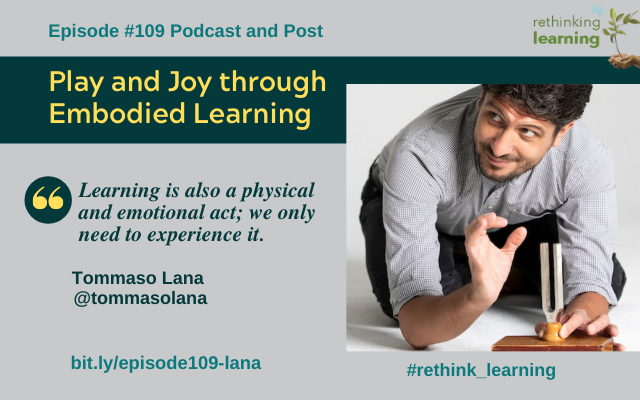
Podcast: Play in new window | Download
Subscribe: Spotify | TuneIn | RSS
Tommaso (Tom) Lana is a performance and consulting artist, as well as the creator of Embodied Learning. I’ve had several conversations with Tom and am excited about sharing his journey with you, from growing up in Milan, the German school, and learning several languages. In every conversation I have with Tom, I feel full of joy and have fun. Enjoy!
Your background
I grew up in the early 80s in the southern outskirts of Milan, Italy. When I was a child, that gray, post-industrial city was the center of one of the worst heroin epidemics in the country.
Suddenly, public spaces became unsafe for children who, since then, had been growing up playing freely and without parental oversight on the street, in playgrounds, and anywhere under the open sky. I grew up indoors, as children did in the pandemic. Luckily, my parents’ apartment had a terrace, which was my outdoor escape.
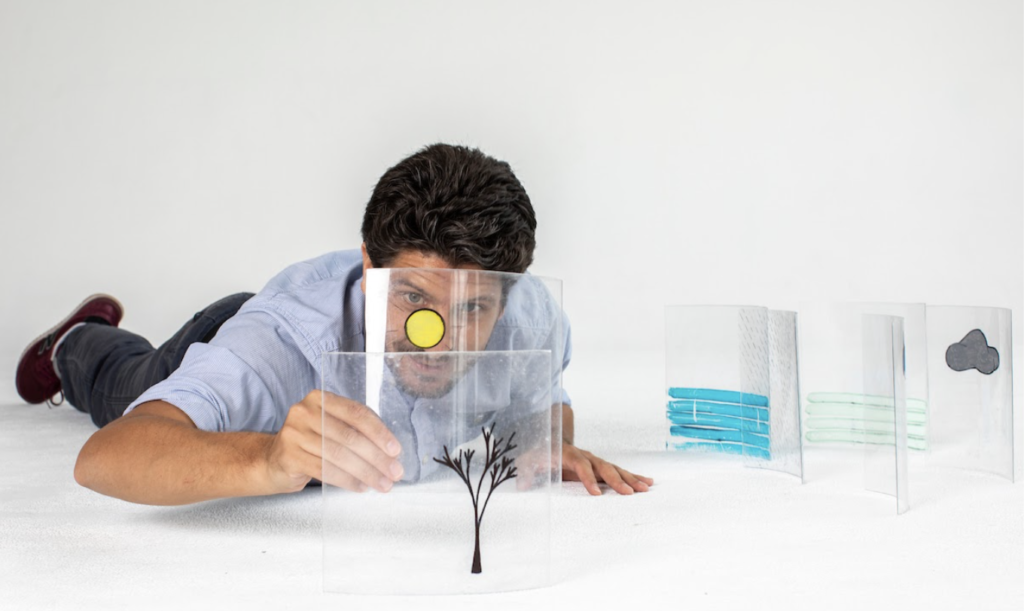
While getting older, I learned how to cope with the city’s reality. At the age of 11, I used to take a bus and a trolley to go to school in the City. While riding on public transport independently, I felt like I was the owner of my hometown. I began learning German in middle school. That was my parents’ choice, which I didn’t like as a child, but now, I’m glad it shaped my life and my career for good.
Your Thesis about the German School
I have a Master’s degree in social history from the University of Milan, Italy. In the 1860s in Milan, Italy, a group of German-speaking young children who attended the school of the local German and Swiss community happened to learn Italian and the Milanese dialect.
“Find the resources behind the wall to design the future.”
They did this by hanging over their schoolyard’s wall during recess and interacting with passers-by. Parents had instructed teachers to prohibit this strictly. But no adult can stop a child from playing and learning. These children grew up and succeeded in Milan as revolutionary entrepreneurs and influential politicians.
Many years ago, I wrote my Master’s thesis in social history about this story and children’s natural potential of enabling change and experiential learning pathways through play. I didn’t know yet that acknowledging children as social change-makers would have become the revolutionary message of my profession.
“The child is the social change maker.”
Moving to Germany: The interactive museum and learning about the senses
My career in the world of experiential learning started in 2005 when I left Italy. I was the manager of visitor services at “The Experience Field for the Development of the Senses” in Wiesbaden, Germany. The most memorable experience I had at that sensory interactive museum was working at the “blind cafe” along with visually impaired colleagues. If dark dining is today a fashionable concept, back in the day, it was a pioneering performance art project. As a person who is able to see, being in the condition of waiting and guiding customers in the darkness helped me to wonder about the natural ability of learning by involving physical and emotional experiences. In the darkness, I’ve rediscovered my childhood, the experiments I used to make on the terrace, and the joy of learning organically.
“Learning comes/gushes from children, naturally.”
Started Embodied Learning in Europe (2008)
It was time to introduce to the world this approach to learning as something that naturally gushes from children. I packed sensory constructions and everyday life materials in two big bags. I started traveling across Europe and offering training programs and performance art sessions to early childhood educators. It was all about learning through the senses, movement, and imagination. The Embodied Learning project was born!
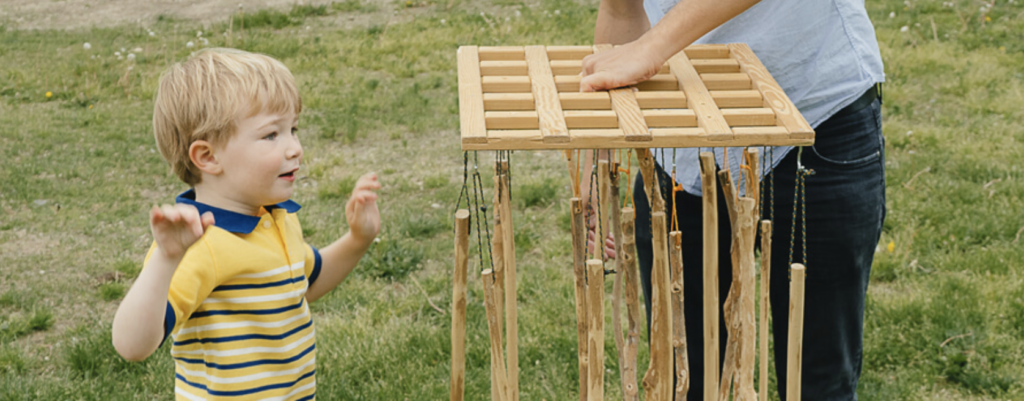
In 2010-2011, Tommaso co-directed the German Representative for Cultural and Media Affairs award-winning social-art project “Paradise 2: What is Energy?”. The project addressed the future of identity and community in regions impacted by vibrant economic and social transitions.
Between 2010 and 2016, he designed, crafted, and curated the “Learning Outside” exhibit at the Preschool Museum, Berlin (which recently moved to Uelzen, Germany), focusing on reinventing the appreciation of learning through sensory experiences, movement, and imagination.
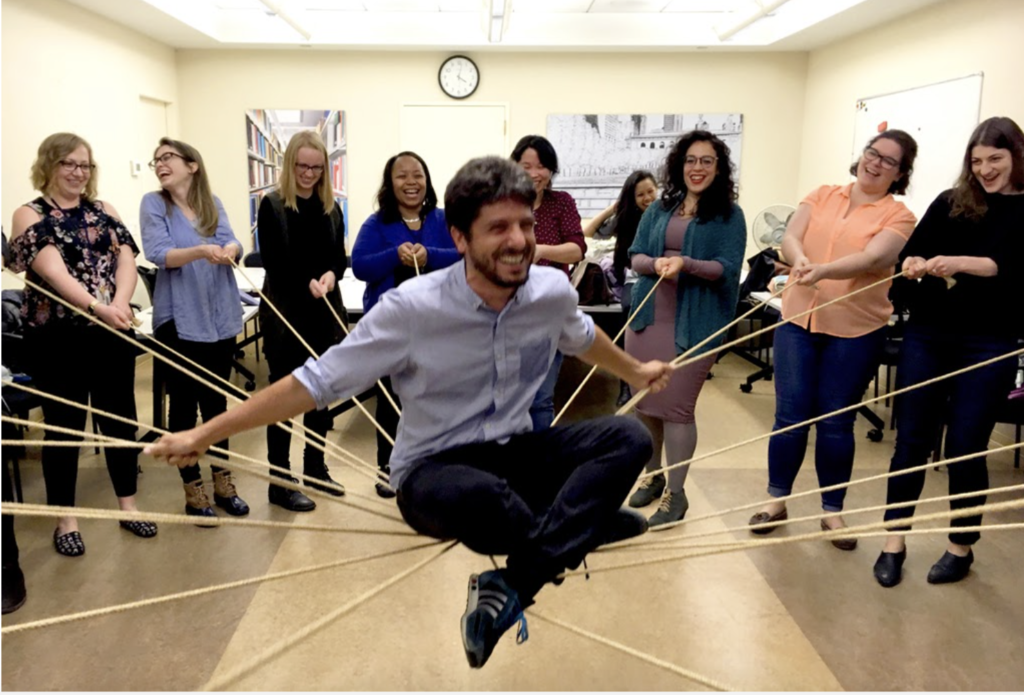
Embodied Learning
Embodied Learning is an experiential staff development training program – in-person and virtual. I use multiple sensory, motor, and imaginative experiences to support early childhood professionals in wondering about the meaning of learning. I’ve been “embodied learning” with my clients for fifteen years: Team-building, parent-teacher communication, remote-learning, SEL, STEM, and outdoor education are my forte.
In 2016/17, I had the opportunity to move to the United States. It was an interesting time when I left Europe. There, schools were trying to implement the digital revolution in education, which was triggered mainly by American technological companies, without having knowledge of the cultural background of technology in schools. I loved the idea of going to the source to explore education in the US. I packed Embodied Learning in my two big bags and moved to New York.
Embodied Learning’s goals
- Demonstrating that children are social changemakers. That means: Changing adult’s mindset about childhood = reinventing learning, reinventing education.
- How does it work? I need adults to experience/redo childhood physically and emotionally by playing (with my Embodied Learning sensory constructions) to understand how many learning experiences, and life skills building happen naturally and in a self-guided way in the first 5 years of life.
- What do I offer? In-person (and virtual, due to COVID) Experiential Playful Training Sessions for adults who work with children in Childcare, Preschools, Schools, Library Systems, Children’s Museums, and more.
With the Embodied Learning projects and training sessions, I have been serving administrators, educators, and children’s librarians at Caltech Children’s Center, Google Children Centers, Smithsonian Early Enrichment Center, Los Angeles Public Library, New York Public Library, Queens Public Library, San Mateo (CA) County Libraries, Socrates Sculpture Park (NY), Allegheny County (Pittsburgh, PA) Library Association and more.
During the COVID pandemic, I launched Embodied Learning at Home, a video series to support parents who stuck at home with their young children through play. Here is #1 of Quarantine Indoor Activities:
In the podcast, I mentioned the Google Doodle of the day we were recording of Gianni Rodari:
https://www.google.com/doodles/gianni-rodaris-100th-birthday Rodari’s book The Grammar of Fantasy will be republished in the US in March 2021. Another great book of his was recently published in the US and fits with COVID times: Telephone Tales.
****
Tommaso’s Contact Information/Resources
- Website: https://embodiedlearning.co/
- Webinars/Virtual Workshops: https://mbod.li/remotelearning
- “Embodied Learning at Home” Video Series for Parents of Young Children on Youtube: https://www.youtube.com/c/embodiedlearning
- “Embodied Learning at Home” Video Series for Parents of Young Children on Facebook: https://www.facebook.com/embodiedlearning.co
- Instagram: @embodiedlearning
- Twitter: @tommasolana
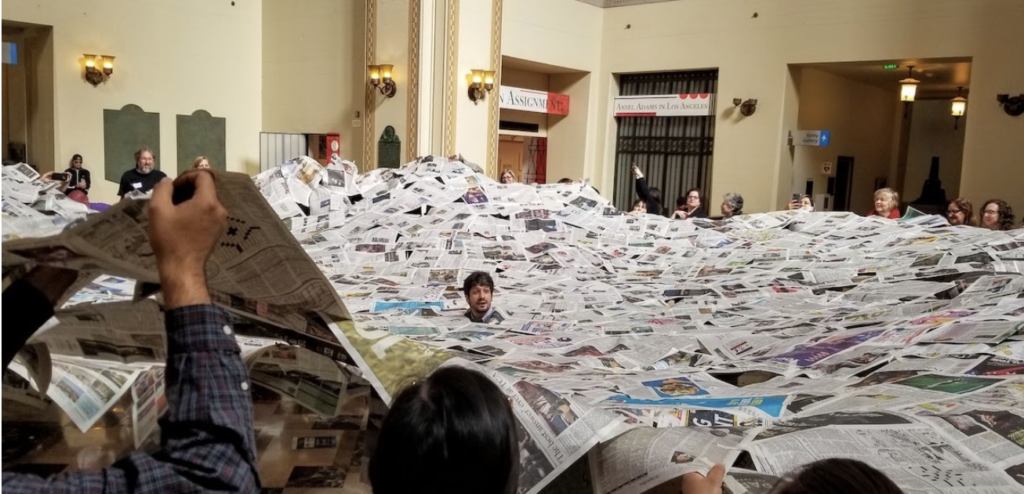
*****
I appreciate that Tommasa Lana joined me on my virtual porch. I learned so much about his story and amazing activities that encourage play. I hope you enjoyed our conversation as much as I did. Please share this post and podcast with your friends and make sure you connect with Tommaso.
*****
Make sure you check out more of the Rethinking Learning podcasts and each post that the guests created. Click on this link or the logo below to list by episode, alphabetical, or reflections. |
I am also the co-host of the “Real Talk” podcast with Nicole Biscotti. We delve deep into the topic “Authenticity in a Polarized Society.” Click on RealTalkBN or the logo below. |
I’m getting wonderful feedback on how much the information and stories in “Define Your Why” have helped them. For more information about this book, go to this page or click on the book for resources, questions, and links. |
My latest book, “Grow Your Why…One Story at a Time,” includes 23 stories from inspirational educators, innovators, and entrepreneurs. Go to this page or click on the book to go to Why Press Publishing for launching, details, and resources. |


